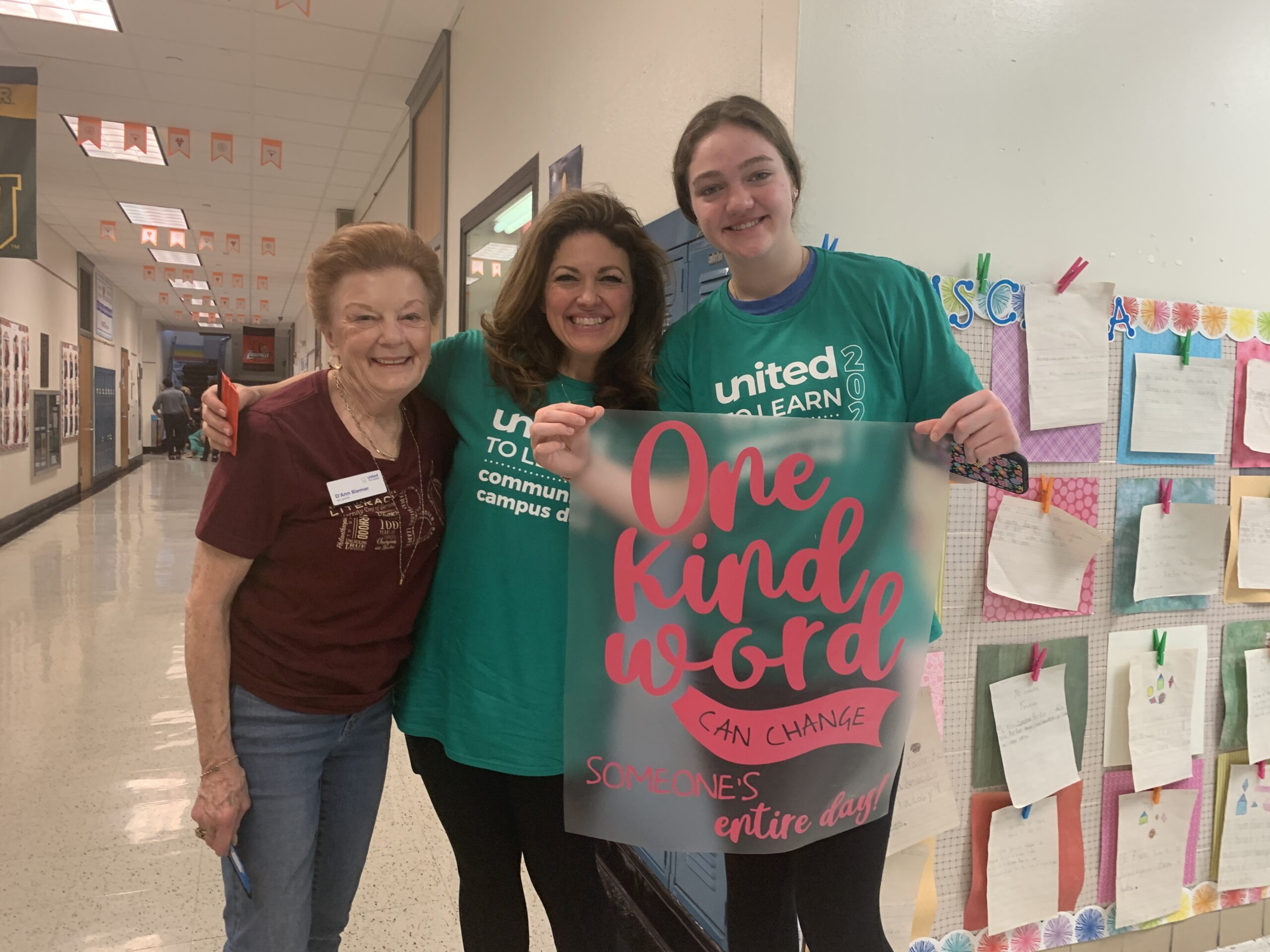
U2L Partner Spotlight: Dallas Alumnae Club of Pi Beta Phi & Texas Beta Chapter of Pi Beta Phi at SMU
Please enjoy this spotlight on a very special U2L Partner:
D’Ann Riemer is a U2L Liaison and the initiator of our partnership with the Dallas Alumnae Club of Pi Beta Phi. D’Ann has worked with Pi Beta Phi to link their mission for literacy achievement with the work of United to Learn. D’Ann connected the two missions and a partnership blossomed. Currently, Dallas Alumnae Club of Pi Beta Phi & Texas Beta Chapter of Pi Beta Phi at SMU work with two of our schools, Obadiah Knight Elementary and Arlington Park Elementary.
We sat down with D’Ann to learn more about this partnership:
How did you happen to become involved with United to Learn?
Just prior to retiring from a 48 year career with Bank of America, I was building my retirement portfolio – those things I wanted to invest in and where I could put my professional skills to work. Because of my mother’s passion for literacy, I knew I wanted literacy to be part of my post-retirement work. My oldest son suggested I talk with Abby Williams about United to Learn. Abby and I met for coffee – she is so inspiring. I had signed on as a volunteer before our conversation ended!
Tell us about your personal role with United to Learn and the work you do in schools?
I’m a school liaison for Everett Lee DeGolyer Elementary School and Cedar Crest Elementary School. That means I work with the principals and staff to identify needs that can be addressed by United to Learn’s programs. A big part of what I do on behalf of United to Learn is address teacher burnout with a variety of teacher encouragement resources. And, I’m very invested in reading advancement and enrichment. I’m always looking for books that teachers can use in their classroom and that the students can take home as their very own. That’s part of how I use my school liaison budget. I am also on the United to Learn Advisory Council, so I get to have a hand in strategic planning and problem resolution.
How does the Pi Beta Phi partnership work with United to Learn?
This is the most exciting thing ever! Another of my post-retirement activities is co-chairing the Literacy Committee of the Dallas Alumnae Club of Pi Beta Phi. I have done that for five years now. Literacy is Pi Beta Phi’s philanthropic effort to inspire a lifelong love of reading and create a more literate and productive society. The Dallas Alumnae Club together with the Texas Beta Chapter at SMU is well-known for its community service that champions literacy through reading enrichment activities with children at DISD schools and in after-school programs. The partnership with United to Learn allows us to increase our impact, enhance our scope, and benefit from ‘opportunities to serve’ which United to Learn gives us. In turn United to Learn benefits from the Dallas Alumnae Club’s financial support and volunteer support of which the Texas Beta college students are a big part. The work we are doing to support the two United to Learn schools adopted by Dallas Pi Phis is mutually beneficial to the schools, Pi Beta Phi, and United to Learn.
It doesn’t get any better than this!
Tell us how your partnership advances literacy achievement.
Two organizations are better than one. U2L and Pi Phi both believe in literacy as an access point to opportunity. Working together is far more impactful than the two working in isolation. While United to Learn benefits from a number of partners, the Dallas Alumnae Club now has the opportunity to work with an organization that can actually track literacy improvement. We can see improvement, especially at our adopted schools, and know we are a part of that.
Why is it important that schools work with community partners?
Let’s turn this question around. Why is it important for the community to invest in its schools? If a community does not invest in its school, that school will never meet the needs of the community. Schools without community partners (i.e. individuals, organizations, and churches invested in support for teachers and students) struggle to attract the best teachers, maintain or gain in state ratings, or provide the best experience for students. Community partners can help a school build out a holistic experience for students, giving the school a variety of resources to enrich the students’ experience. Community partners can come to the aid of students and their families in an emergency, that of an individual family or an emergency resulting from a force of nature. Simply put, schools cannot be their best without partnerships beyond school walls.
United to Learn would like to thank D’Ann Riemer for this interview.